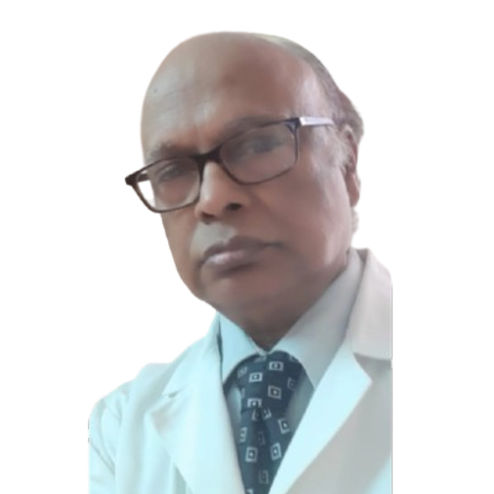Balance Disorders
Discover the causes, symptoms, and treatments of balance disorders. Learn how early diagnosis, effective management, and lifestyle changes help.

Written by Dr Sonia Bhatt
Last updated on 3rd Jul, 2025
Introduction
Balance disorders make it hard for the body to stay stable, making individuals feel dizzy, lightheaded, or spinning. These issues result from balance system issues including the eyes, muscles, nerves, and heart. These make it harder to perform the daily chores with a looming risk of falling anytime. Thus, knowing this disorder helps people detect symptoms early, obtain better care, and feel safer. Also, awareness leads to seeking help, which empowers people to manage their symptoms better, improve their health, and enjoy their lives.
Types of Balance Disorders
The different types of balance disorders are –
1. Vertigo: Vertigo causes spinning even when the individual is remaining still. It commonly occurs with nausea and unsteadiness due to inner ear or neurological abnormalities.
2. Benign Paroxysmal Positional Vertigo: Dislodging of inner ear calcium crystals causes BPPV. It leads to the head movements-induced dizziness—the most prevalent cause of adult vertigo.
3. Ménière’s Disease: This is another reason behind balance disorder. It causes acute vertigo, hearing loss, tinnitus, and ear fullness.
4. Labyrinthitis and Vestibular Neuritis: These inner ear inflammations, typically caused by viruses, impact balance and hearing. Vestibular neuritis attacks the balance nerve, causing dizziness and walking difficulties.
Causes of Balance Disorders
Balance disorders arise from various factors affecting the body's equilibrium system. Here are some common causes –
1. Inner Ear Issues
Common reasons for body balance-related problems are the issues with the vestibular system, like BPPV, Ménière's disease, and vestibular neuritis. These situations mess up the messages the body sends to the brain about where it is and how it moves.
2. Neuro Disorders
Parkinson's disease, multiple sclerosis, and peripheral neuropathy are all neurological conditions that can make it hard to maintain body balance. These conditions affect the brain, spinal cord, or nerves.
3. Side Effects of Medication
Medicines like sedatives, antihypertensives, and antibiotics, can make individuals feel dizzy or unsteady, which worsen the balance disorder.
4. Circulatory and Cardiovascular Factors
Postural hypotension, palpitations, or low blood flow to the brain can make individuals feel dizzy and lose their balance, especially when they stand up quickly.
Symptoms of Balance Disorders
The common symptoms of balance disorder are –
1. Feeling Dizzy or Lightheaded: Feelings of spinning (vertigo) or flying are common signs of being lightheaded. Problems with the inner ear, side effects from medications, or low blood pressure can all make individuals feel dizzy.
2. Unsteady or Staggering Walk: People with balance problems may find walking hard because they feel shaky and may stumble or fall. This condition usually gets worse in dark places or on rough surfaces.
3. Nausea and Vomiting: Because the brain has to deal with conflicting sensory messages, vertigo and other balance problems often make people feel sick and make them throw up.
4. Cognitive and Eye Changes: Other signs that can come along with balance issues, when the vestibular system is involved, are blurred vision, confusion, or focusing.
Consult Top ENT Doctor
Diagnosis of Balance Disorders
Balance problems make it hard to coordinate and stay stable, which can lead to dizziness, vertigo, and feeling unsteady. There are three phases of diagnosing this condition, here are they:
1. Phase 1: Assessment of Medical History and Physical Examination
The first phase of the diagnosis of this condition involves a thorough assessment of the patient’s medical history and subsequent physical examination. Doctors check symptoms, medications, and prior diseases or incidents that may have led to this condition.
2. Phase 2: Conducting Balance and Hearing Tests
The next phase of the diagnosis is conducting balance and hearing tests. This include audiology, electronystagmography (ENG), and video head impulse testing (vHIT). These tests evaluate the inner ear and balance systems and help doctors diagnose and treat patients.
3. Phase 3: Administer Imaging Tests for Further Diagnosis
In the last phase, medical experts suggest MRI and CT scans can to detect tumours and nerve issues that could compromise balance.
Treatment Options for Balance Disorders
The treatment options for balance disorders include using medications for anti-vertigo, anti-nausea, and diuretics to treat balance issues. These medications relieve inner ear fluid accumulation and dizziness, making daily life easier.
Virtual reality therapy (VRT) is also used for the treatment. It uses personalised movements to help people with balance issues feel less dizzy. These treatments teach the brain to compensate for inner ear problems, improving steadiness and coordination over time.
Besides medication and therapy, individuals need to make changes to their lifestyle to deal with this issue. This includes cutting down on consuming excessive coffee and salt, staying hydrated, avoiding sudden head movements, and practising relaxation methods.
However, in some serious cases individuals may need surgery, such as endolymphatic sac decompression or cutting the vestibular nerve. People with severe symptoms that don't get better with other medicines are usually the only ones who can benefit from these methods.
Living with Balance Disorders
Living with balance disorders affects daily activities and challenges physical and emotional well-being. Here is how one can do it –
1. Practising Safety Tips
Taking safety precautions like putting up grab bars, using non-slip mats, and wearing strong shoes can lower the risk of falling. Making sure places are well-lit also makes it easier to move around and boosts confidence.
2. Managing Stress through Support Systems
People who have long-term balance problems need a lot of emotional and mental help. Support groups and therapy can help them to manage the stress of this condition better. By sharing their worries with other like-minded people, they can feel relieved.
3. Using the Right Tools
Tools like canes, walkers, and balance bands can help people feel more stable and independent. These tools are beneficial for older people with serious balance problems.
Prevention of Balance Disorders
Individuals can prevent balance disorder through a few effective tips. Here are they –
Regular check-ups with a doctor
Regular medical check-ups help find problems early, which lowers the risk of having balance disorders. These screenings also make sure that chronic diseases are treated on time.
Dealing with Risks
Taking good care of health problems like high blood pressure, diabetes, and ear infections lowers the chance of having issues with the body balance.
Maintaining a Healthy Lifestyle
Keeping a healthy lifestyle by being active, having a balanced diet, and not drinking coffee too much is good for your health, which, in turn, improves the body balance.
Advances in Balance Disorder Research
New methods, like gene therapy and virtual reality-based rehabilitation, offer creative ways to deal with balance problems. These methods show hope for making symptoms better and speeding up healing.
The current on-going studies aim to find the genetic and biological causes of balance problems. It will make specific treatments and preventative measures possible to cure this problem. Also, there are apps and gadgets that one can wear to check balance and get real-time feedback.
Conclusion
Balance disorders significantly impact daily life, making it difficult to even complete the day-to-day tasks. But, it is possible to get out of this situation with timely intervention and proper treatment. Early diagnosis, medication, lifestyle changes and family support can help individuals overcome this hurdle and get back to a normal life, without any worries.
Consult Top ENT Doctor
Consult Top ENT Doctor
Dr. Shalu Sharma
Ent Specialist
14 Years • MBBS, DLO, DNB (ENT)
Delhi
Salus Advanced ENT Care, Delhi

Dr. Spandita Ghosh
Ent Specialist
7 Years • MBBS, MS
Kolkata
Health Connect, Kolkata

Dr. Sourav Banerjee
Ent Specialist
5 Years • MBBS, MS (Otorihnolaryngology)
New Delhi
THE DOCTORS NESST, New Delhi

Dr. M Venkata Apparao
Ent Specialist
25 Years • MBBS MS
Visakhapatnam
Apparao ENT CLINIC, Visakhapatnam

Dr. Krishan Rajbhar
Ent Specialist
8 Years • MBBS, MS(ENT), Fellowship in Neurotology Fellowship in Middle Ear Surgery & Cochlear Implant, Fellowship in Allergy & Asthma
Kolkata
Dr. Krishan Rajbhar's Clinic, Kolkata
(150+ Patients)
Consult Top ENT Doctor
Dr. Shalu Sharma
Ent Specialist
14 Years • MBBS, DLO, DNB (ENT)
Delhi
Salus Advanced ENT Care, Delhi

Dr. Spandita Ghosh
Ent Specialist
7 Years • MBBS, MS
Kolkata
Health Connect, Kolkata

Dr. Sourav Banerjee
Ent Specialist
5 Years • MBBS, MS (Otorihnolaryngology)
New Delhi
THE DOCTORS NESST, New Delhi

Dr. M Venkata Apparao
Ent Specialist
25 Years • MBBS MS
Visakhapatnam
Apparao ENT CLINIC, Visakhapatnam

Dr. Krishan Rajbhar
Ent Specialist
8 Years • MBBS, MS(ENT), Fellowship in Neurotology Fellowship in Middle Ear Surgery & Cochlear Implant, Fellowship in Allergy & Asthma
Kolkata
Dr. Krishan Rajbhar's Clinic, Kolkata
(150+ Patients)
Consult Top ENT Doctor
Dr. Shalu Sharma
Ent Specialist
14 Years • MBBS, DLO, DNB (ENT)
Delhi
Salus Advanced ENT Care, Delhi

Dr. Spandita Ghosh
Ent Specialist
7 Years • MBBS, MS
Kolkata
Health Connect, Kolkata

Dr. Sourav Banerjee
Ent Specialist
5 Years • MBBS, MS (Otorihnolaryngology)
New Delhi
THE DOCTORS NESST, New Delhi

Dr. M Venkata Apparao
Ent Specialist
25 Years • MBBS MS
Visakhapatnam
Apparao ENT CLINIC, Visakhapatnam

Dr. Krishan Rajbhar
Ent Specialist
8 Years • MBBS, MS(ENT), Fellowship in Neurotology Fellowship in Middle Ear Surgery & Cochlear Implant, Fellowship in Allergy & Asthma
Kolkata
Dr. Krishan Rajbhar's Clinic, Kolkata
(150+ Patients)
Consult Top ENT Doctor
Dr. Shalu Sharma
Ent Specialist
14 Years • MBBS, DLO, DNB (ENT)
Delhi
Salus Advanced ENT Care, Delhi

Dr. Spandita Ghosh
Ent Specialist
7 Years • MBBS, MS
Kolkata
Health Connect, Kolkata

Dr. Sourav Banerjee
Ent Specialist
5 Years • MBBS, MS (Otorihnolaryngology)
New Delhi
THE DOCTORS NESST, New Delhi

Dr. M Venkata Apparao
Ent Specialist
25 Years • MBBS MS
Visakhapatnam
Apparao ENT CLINIC, Visakhapatnam

Dr. Krishan Rajbhar
Ent Specialist
8 Years • MBBS, MS(ENT), Fellowship in Neurotology Fellowship in Middle Ear Surgery & Cochlear Implant, Fellowship in Allergy & Asthma
Kolkata
Dr. Krishan Rajbhar's Clinic, Kolkata
(150+ Patients)